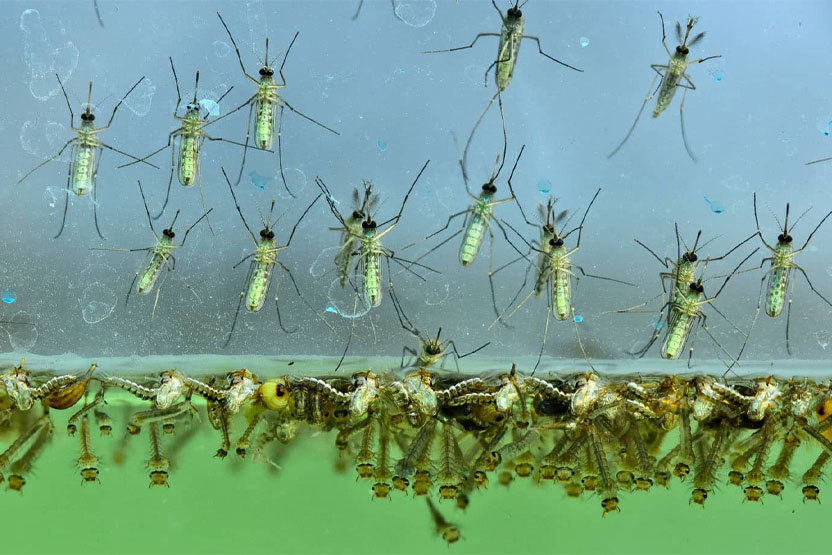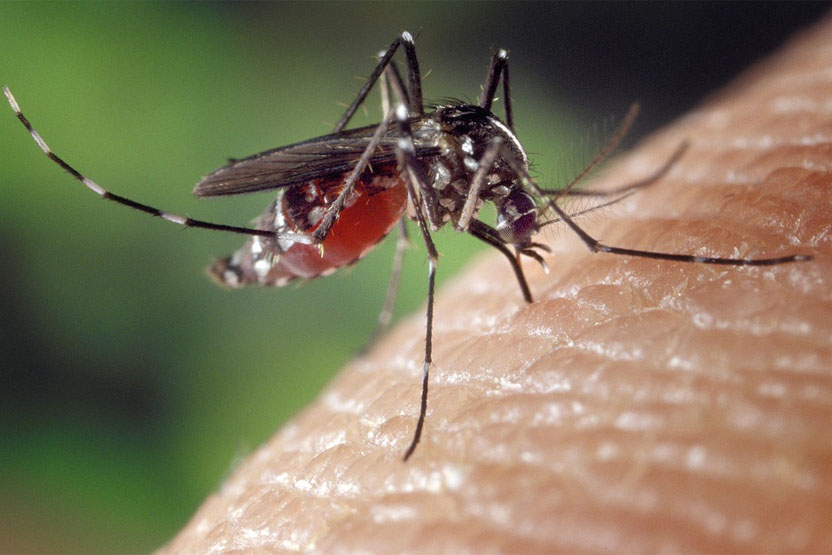
Every year on August 20, World Mosquito Day marks Sir Ronald Ross’s 1897 discovery that mosquitoes transmit malaria—a breakthrough that later earned him the Nobel Prize in Medicine. More than a century on, mosquitoes remain the deadliest animals on Earth, responsible for over one million deaths annually and infecting as many as 700 million people. But today, the threat is being amplified by a new factor: climate change and environmental degradation, which are turning mosquitoes into even more formidable predators.
Climate Change: An Accelerator of Spread
The link between climate and mosquitoes is now well established. As cold-blooded species, unable to regulate their own body temperature, mosquitoes depend entirely on their environment. The warmer it gets, the faster their life cycle runs: they reproduce more quickly, bite more often, and thrive in places that were once too hostile. The Aedes albopictus, better known as the “tiger mosquito,” once confined to Asia, is now firmly established in 36 U.S. states and across most of Southern Europe. Meanwhile, Aedes aegypti—the main vector for dengue, Zika, and yellow fever—is steadily expanding northward, taking advantage of longer summers and milder winters.
The projections are troubling. A study from the London School of Hygiene and Tropical Medicine estimates that by 2080, over eight billion people could be exposed to dengue and malaria. Already, “autochthonous” dengue cases—contracted locally, without foreign travel—have been reported in France, Italy, and Spain. Similarly, West Nile virus, once restricted to Africa, has become endemic in parts of Europe and the United States, with cases soaring in recent years.
Environmental Disasters and Urban Growth: Breeding Grounds for Mosquitoes
Warming alone isn’t to blame. Extreme weather events—floods, droughts, cyclones—create perfect breeding conditions. After catastrophic flooding in Germany in 2021, mosquito populations increased tenfold. Conversely, droughts often force communities to store water in containers, which quickly become breeding sites.
Unchecked urbanization, plastic waste, and poor sewage management make matters worse. So-called “container breeders” thrive in stagnant water trapped in bottle caps or discarded tires. Researchers note that a single female Aedes can lay up to 200 eggs in something as small as a soda bottle cap. Dumpsites, backyard gardens, and city alleys are turning into open-air incubators.
Each year, tens of thousands die directly from Aedes-borne diseases, while hundreds of millions fall seriously ill. Add to this human mobility: international trade and travel help mosquitoes and their eggs hitchhike across continents
Aedes albopictus reached Europe through shipments of used tires and ornamental plants. In short, mosquitoes now follow trade routes and migration flows, making outbreaks more unpredictable than ever.
Expanding Health Threats
While malaria remains the most infamous mosquito-borne disease, other viruses are gaining ground. In 2024, West Nile virus—spread by Culex mosquitoes—was reported in 39 U.S. states. Cases of Eastern equine encephalitis, a rare but often fatal disease, are rising in the U.S. Northeast. In Europe, dengue, chikungunya, and Zika are spreading at alarming rates, while Japan, Australia, and Nepal are reporting new outbreaks—even at higher altitudes.
Even more concerning are simultaneous infections. In 2024, a patient in New Hampshire was hospitalized after contracting three mosquito-borne illnesses at once: West Nile virus, Eastern equine encephalitis, and St. Louis encephalitis. Such cases illustrate what scientists describe as the emergence of “a hotter, sicker world.”
What Can Be Done?
The fight against mosquitoes can no longer rely solely on insecticides, especially as resistance builds. New strategies are being tested: releasing sterile mosquitoes, introducing natural bacteria like Wolbachia to reduce their ability to transmit viruses, and deploying smart traps for early detection. In 2022, the World Health Organization launched a Global Arbovirus Initiative to coordinate prevention and control efforts.
Yet experts warn: no technology will succeed if root causes—climate change, pollution, uncontrolled urbanization—remain unaddressed. Every cigarette butt, every discarded plastic bottle can serve as a nursery for hundreds of mosquitoes. Every fraction of a degree added to the global average temperature expands their range and lengthens their breeding season.
The Mosquito: A Mirror of Our Ecological Crisis
World Mosquito Day is not just a tribute to Ronald Ross’s scientific breakthrough. It should also be a moment to reflect on how our environmental, economic, and political choices are fueling the spread of this tiny enemy. The mosquito doesn’t invent new diseases—it merely exploits our weaknesses: a destabilized climate, polluted cities, and unprepared societies. In that sense, it is the starkest reminder of the deep interdependence between human health and the health of the planet.



Comment
Reply